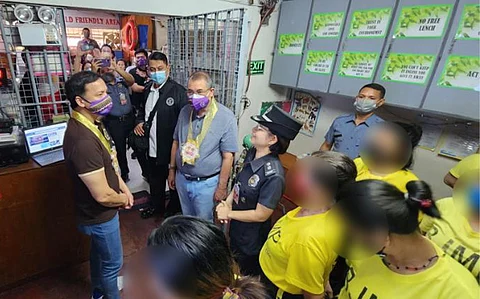
- NEWS
- the EDIT
- COMMENTARY
- BUSINESS
- LIFE
- SHOW
- ACTION
- GLOBAL GOALS
- SNAPS
- DYARYO TIRADA
- MORE

The Department of Justice (DOJ) and the Supreme Court (SC) are now crafting new regulations to enable judges to evaluate the financial situations of disadvantaged defendants who cannot afford bail for them to be provisionally released based on specific criteria.
The initiative was disclosed by SC Associate Justice Maria Filomena Singh during a visit to the Cebu City Jail Female Dormitory (CCJ-FD) along with her fellow justices.
The Associate Justice expressed concern over inmates' inability to post bail due to financial constraints despite facing bailable offenses.
Expected to benefit from the proposal include individuals charged with non-heinous crimes, first-time offenders, breadwinners, expectant mothers, and others as determined during the rule-drafting process.
The visit of justices to CCJ-FD aimed to evaluate detainee conditions and facility standards and primarily assist in formulating the Manual and Protocol for Handling Cases of Women in Conflict with the Law.
The high bench to address the issue is revising the Rules on Criminal Procedure to incorporate these considerations.
Judges will assess various factors such as the defendant's criminal history, the nature of the offense, age, pregnancy, parental responsibilities, and financial status before deciding on bail eligibility, prioritizing alternatives to incarceration when applicable.
Also cited by Justice Singh is the recent ruling of the SC En Banc in G.R. No. 249027 and G.R. No. 249155 (Guinto et al., v. Department of Justice; Inmates of New Bilibid Prison, et al. v. Department of Justice), which she authored, stating that individuals convicted of heinous crimes are now eligible to apply for Good Conduct Time Allowance (GCTA) during their incarceration.
"For those who have faced setbacks in our legal battles and have been convicted, with our appeals unsuccessful, and now find ourselves serving time in correctional facilities: do not lose hope. We have a recent decision, the Guinto case, wherein we declared that even for heinous offenses, individuals can still benefit from GCTA," Justice Singh said.
She said, "We are human, prone to errors, imperfect, not divine. And when mistakes happen, there should still be room for redemption because none of us is flawless. That's why in the Guinto case, we affirmed that even for heinous offenses, even for repeat offenders, GCTA remains an option. Let us strive for better."
